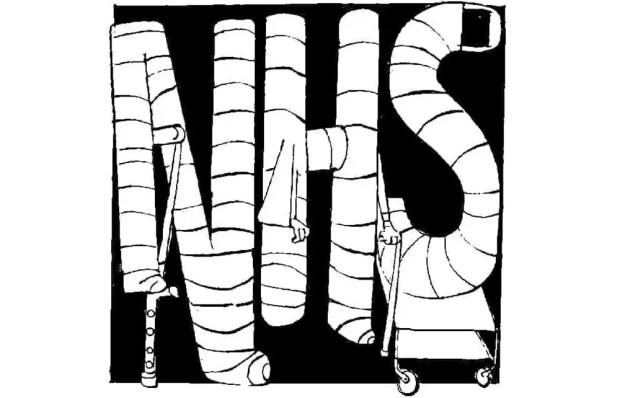Could you be a useful and loving father to your children if you only ever saw them on a computer screen? Most of us would say no. So much of being a parent is about being physically there. It’s curious then that our courts seem to think the opposite — that a chat via Skype or on an iPad is all a father needs to bond with and care for his child.
British judges, like American ones, have to deal with increasingly complicated custody cases every year. We travel more these days, and so we meet our partners abroad. When these marriages break up (as four in ten marriages do), a foreign wife often longs to take the kids and head back home. In the past, when a custody case like this came to court, a judge might have said no, on the grounds that the children must be in reach of their father. But these days the fashion is for ruling in favour of ‘virtual visitations’. A mother can move where she likes, say our judges, and take the children with her, because the requirement for contact is fulfilled by a video call.
It’s a desperate situation for the fathers. I’ve spoken to several ‘Skype Dads’ who say this form of contact means not really being a dad at all — more of an evening duty, a badly flickering TV programme. I spoke to one Skype Dad, David, who talks to his young sons on screen twice a week. The boys are seven and eight and now live in Sweden with their Swedish mother. David, back in England, says he can feel his relationship with them deteriorating weekly: ‘It’s the worst form of torture for a parent.’
Skype Dads have been common in the United States and Canada since 2002, where video calls were at first a lifeline for fathers with children living in different states. Michael Gough was the first Skype Dad. When he and his wife divorced in 2002, she asked the Utah courts for permission to move to Wisconsin with their four-year-old daughter. Gough, a software security specialist working for Hewlett Packard, was aware of a bit of kit called NetMeeting, used for video conference calls. He asked the judge for regular NetMeetings with his daughter. By the time the case reached the courts, it was 2003 and the US news networks were reporting from Baghdad. The judge was not convinced by Gough’s proposal. ‘Is it anything like the CNN satellite feed from Iraq? Because that’s crap. I’m not ordering that.’ Undaunted, Michael set up two laptops at either end of the courtroom and demonstrated how it would work. The judge agreed to include video calls in the custody agreement.
Skype was launched later that same year. The technology was expensive. In 2004, the average cost of building a ‘virtual visitation system’ with audio equipment and web cameras was around $700. Today, Skype and similar services such as Facetime are free to download, and you can use one on pretty much any laptop, smartphone or tablet.
It took some years for UK courts to catch up. The first high-profile case in this country was overseen by family judge Sir Nicholas Wall in 2011 and it was in this first case that the idea of virtual visitation went wrong. Newspapers reported his judgement under the headline: ‘Let them use Skype.’ The case involved a father who lived in Devon who wanted to stop his former partner taking their two children to Australia. Sir Nicholas was persuaded by the mother’s lawyers that technology would allow the family to keep in touch. The children would return to the UK for one month a year to stay with their father. For the other 11 months, ‘Contact by Skype, post and otherwise would be arranged.’ The judge was certain that neither the UK nor Australian courts would ‘sit idly by and allow the relationship to wither’.
But Michael Robinson, author of The Custody Minefield, says that all too often a parent gives assurances to an English court only to abandon them the moment their plane touches down elsewhere — particularly if the divorce has been acrimonious. And pursuing a custody case abroad, he says, is always a nightmare and sometimes impossible.
One British father, Andrew, told me he had not seen his children for over two years after his marriage broke down while he was working in Singapore. In the divorce settlement, he obtained a Singaporean court order to visit the children and to have unlimited Skype time. His wife then moved with the children to Oman, which does not recognise the court order.
He is now preparing to spend thousands of pounds going through the Omani court system. He told me he was desperate and that his only real hope was to wait until the children were old enough to contact him independently.
Contact by Skype is often a frustrating experience. How can a father build and develop a relationship on screen?
Adam is a case in point. He’s spoken to his young son in Australia once a week for the past three years. Adam speaks to his son late on a Friday night; early on a Saturday morning in Australia and he says the time difference is very difficult. ‘You know what it’s like. A small child wakes up and wants to run around. You are also very limited to seeing one aspect of a child’s life — I have never seen him in a school uniform, except in photos. I have never picked him up from school and probably never will.’
Then there’s the hidden, perhaps anxiously controlling presence of the ex. Several fathers told me they were aware of the mother of their children hovering in the background — just an arm visible on the edge of the screen. It rather precludes spontaneous, relaxed chatting.
Some judges may now have realised that virtual visitation has limitations. Earlier this year, Judge Roderic Wood denied a mother permission to take her two-year-old son to Hong Kong. She had argued that the boy could keep in touch with his father with internet video calls and visits. The judge ruled, ‘I do not believe this mother once in Hong Kong, if given permission, would adhere to the contact regime prefigured in her case.’
He added: ‘As counsel notes in her closing submissions, “You can’t hug Skype.”’ You don’t have to be a touchy-feely type to see the point.
Got something to add? Join the discussion and comment below.
Get 10 issues for just $10
Subscribe to The Spectator Australia today for the next 10 magazine issues, plus full online access, for just $10.
Names have been changed.
You might disagree with half of it, but you’ll enjoy reading all of it. Try your first month for free, then just $2 a week for the remainder of your first year.














Comments
Don't miss out
Join the conversation with other Spectator Australia readers. Subscribe to leave a comment.
SUBSCRIBEAlready a subscriber? Log in